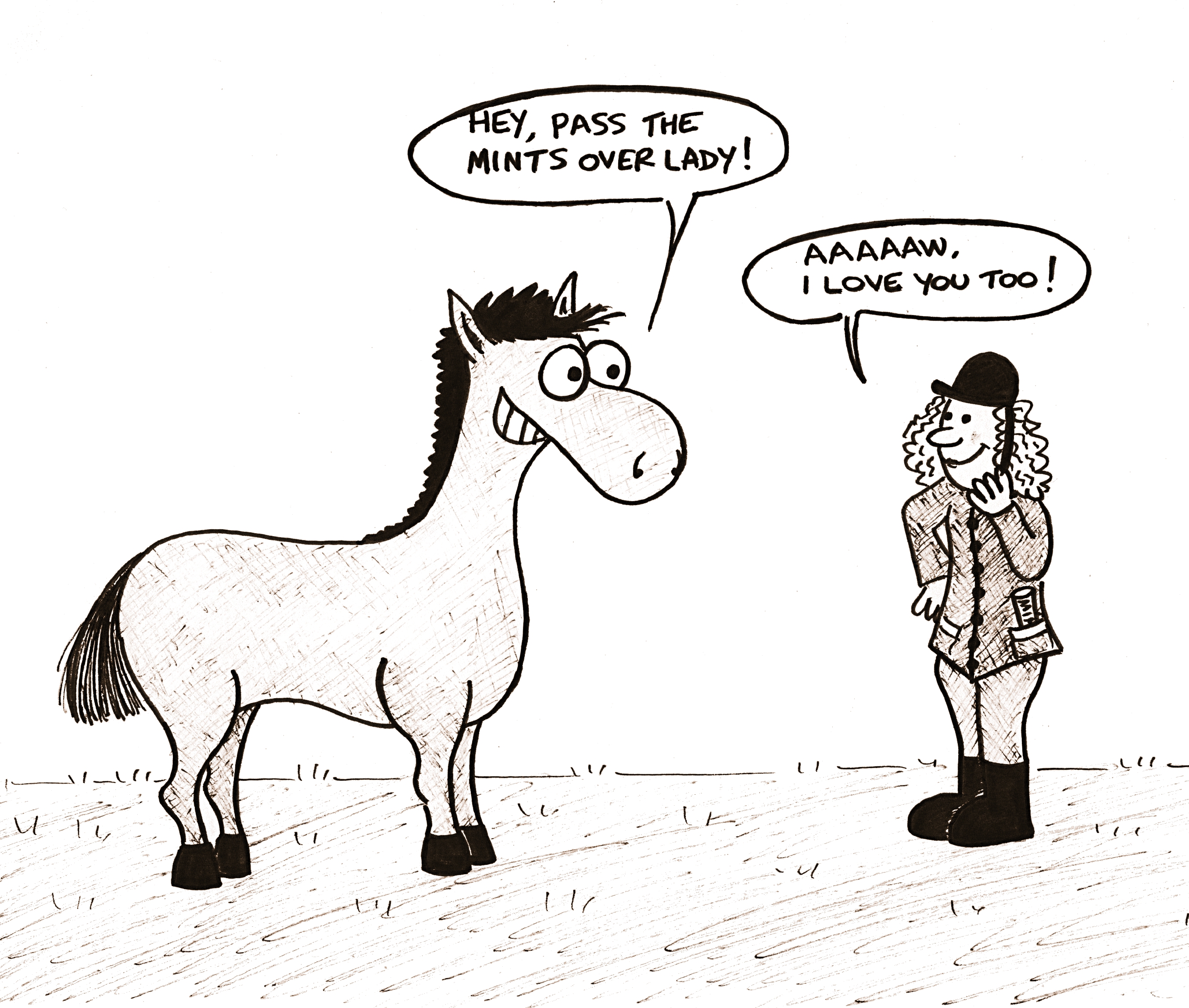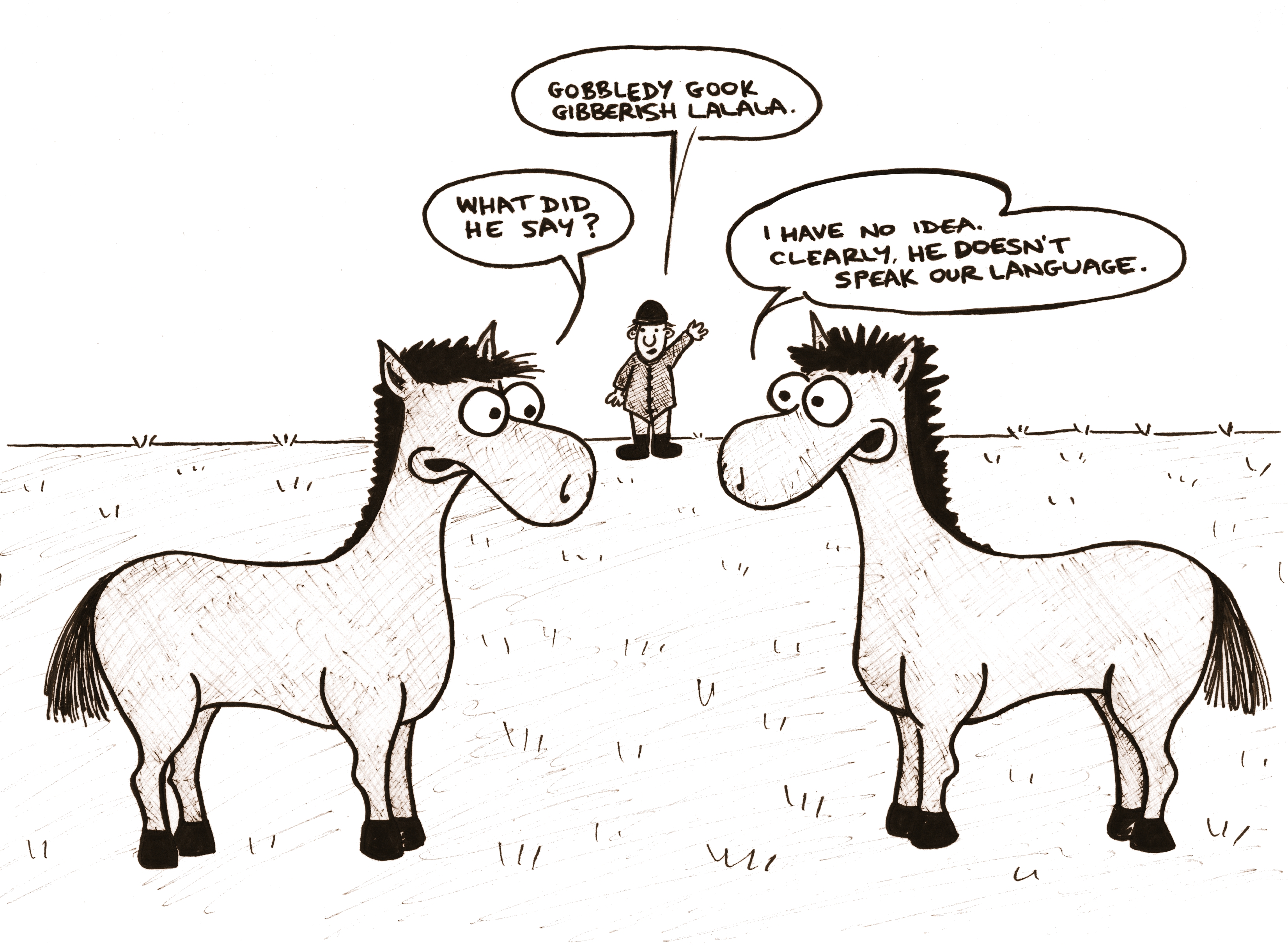What horses are saying when they ‘speak’…
Ever wondered what your horse is saying when he greets you with his ‘voice’? Or what he may be communicating to others with a high pitch call? I’ve put together a short ‘mini-dictionary’ of horse vocalisation which I hope you find useful to more fully understand your equine friend.
Being a herd animal, horses are highly sociable. We humans have our social encounters through our body language including eye contact and through speech. A horse communicates almost entirely through body language signals to one another. Equine body language is on the whole very subtle and they’ll communicate constantly when together. It’s when they especially need to attract attention that horses use vocalisation. It’s good to remember that ALL equine vocalisation is social behaviour.
Generally, higher pitch and short sounds indicate arousal. This can be excitement or fear. Whereas long, low sounds indicate calm and confidence.
The horse ‘call’ we’re most familiar with is the Whinny (Neigh).The Whinny is loud and long, it begins high and ends in a lower frequency. It can travel up to 1km and roughly translated it means ‘I’m here, where are you?!”
You may hear a horse Whinny when an equine buddy is being taken away or once they are out of sight. Along with other key body language signals, a whinny can indicate confident territorial behaviour OR Separation Anxiety from another horse.
The Squeal is a short, high pitch sound, similar to a ‘scream’. A horse will squeal when irritated or aroused. It means ‘Hey, don’t do that‘ or ‘I’m the boss, not you!’
Interestingly, when two horses are having an affiliative (close) interaction, the last one to squeal is usually the more ‘socially confident’ of the pair.
If a person is facing a behavioural challenge with their horse, such as spinning, rearing or bucking and it is accompanied with a Squeal, it is a good clue that the problem is likely to be ‘socially motivated’. The horse may believe they have the more confidant role in the partnership, as there’s always a more confidant and lesser confident horse in any pairing. They may feel they are responsible for taking the lead or making the decisions.
A Nicker is low and vibrating. It shows anticipation and means ‘It’s ok to come close‘ or ‘Give me the food!’ It’s often heard as the carer of the horse arrives or just before feeding time.

A Blow is the sudden and loud exhaling of air after a horse has been ‘holding their breath’ and signifies alarm or curiosity. You’ll hear a Blow if a horse is suddenly faced with something foreign or strange. It is very arousing to others and designed to bring attention to the horse and the environment.
The Snort clears the nostrils and is a low, pulsed sound, made by nostril vibration. When by a horse’s head a person can sometimes be given a ‘oh so generous free shower’ as the horse expels debris along with some fine mucus over whatever (or whoever!) is immediately in front of them!
A fascinating study recently carried out, has found that Snorting can be linked with positive emotions in the horse. In summary, the more the horse snorts, the more relaxed they are and the less stress signs they are likely to show, which overall indicates better welfare. We all want our horses to feel relaxed and good, so this new evidence proving the association between horses snorting more and their positive emotions, I hope will be useful, and lead to even better environments for our wonderful horses.
There is still much to be discovered about horse calls but researchers with the Equine Vocalisation Project suggest that as the whinny is so accoustically complex it could be sending specific messages to others. Generally the longer and the higher pitch the whinny is, the more urgently your horse is trying to communicate something.
So, the next time your horse ‘talks’ see what tone and frequency he uses, and enjoy translating the message!

